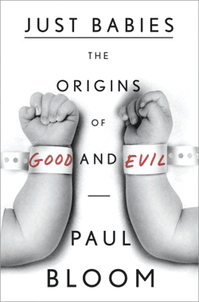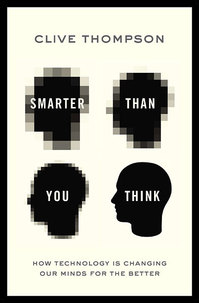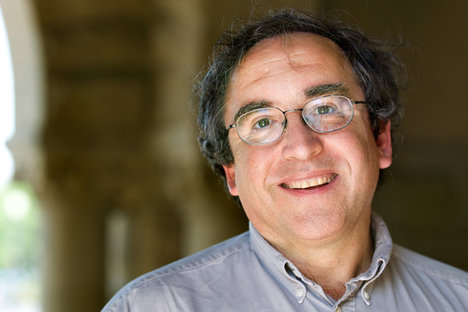Source of book image: http://news.yale.edu/sites/default/files/imce/main-bloom.jpg
(p. 15) Is morality innate? In his new book, “Just Babies,” the psychologist Paul Bloom draws from his research at the Yale Infant Cognition Center to argue that “certain moral foundations are not acquired through learning. . . . They are instead the products of biological evolution.” Infants may be notoriously difficult to study (rats and pigeons “can at least run mazes or peck at levers”), but according to Bloom, they are, in fact, “moral creatures.”
He describes a study in which 1-year-olds watched a puppet show where a ball is passed to a “nice” puppet (who passes it back) or to a “naughty” puppet (who steals it). Invited to reward or punish the puppets, children took treats away from the “naughty” one. These 1-year-olds seem to be making moral judgments, but is this an inborn ability? They have certainly had opportunities in the last 12 months to learn good from bad. However, Bloom has found that infants as young as 3 months old reach for and prefer looking at a “helper” rather than a “hinderer,” which he interprets as evidence of moral sense, that babies are “drawn to the nice guy and repelled by the mean guy.” He may be right, but he hasn’t proved innateness.
Proving innateness requires much harder evidence — that the behavior has existed from Day 1, say, or that it has a clear genetic basis. Bloom presents no such evidence. His approach to establishing innateness is to argue from universalism: If a behavior occurs across cultures, then surely it can’t be the result of culture.
For the full review, see:
SIMON BARON-COHEN. “Little Angels.” The New York Times Book Review (Sun., December 29, 2013): 15.
(Note: ellipsis in original.)
(Note: the online version of the review has the date December 27, 2013.)
Book under review:
Bloom, Paul. Just Babies: The Origins of Good and Evil. New York: Crown Publishers, 2013.








